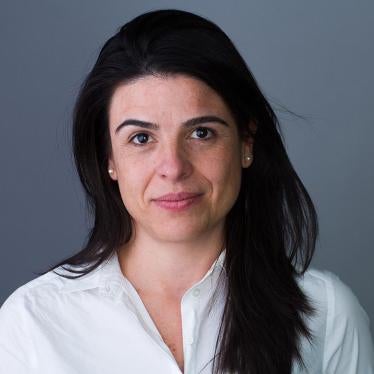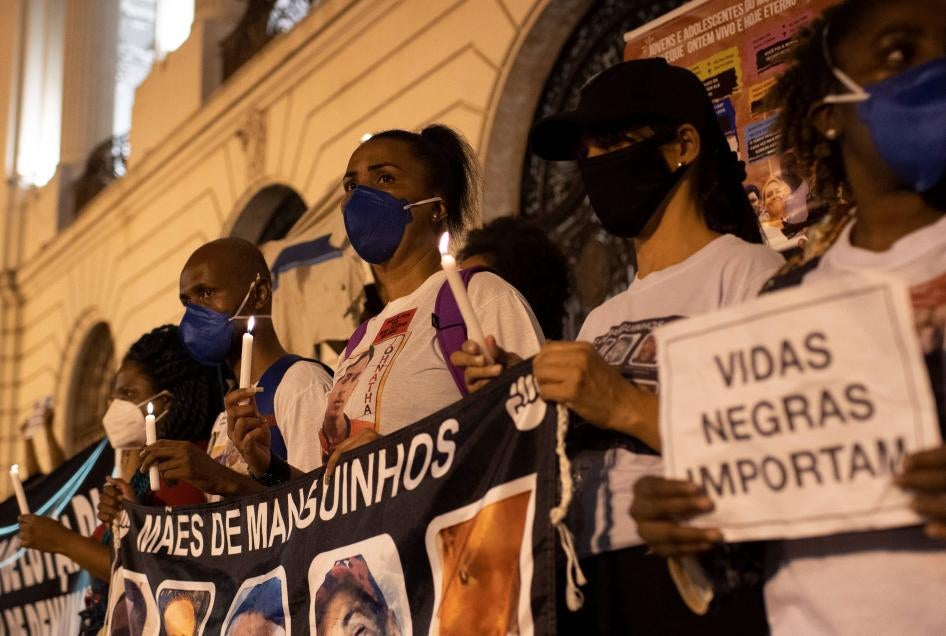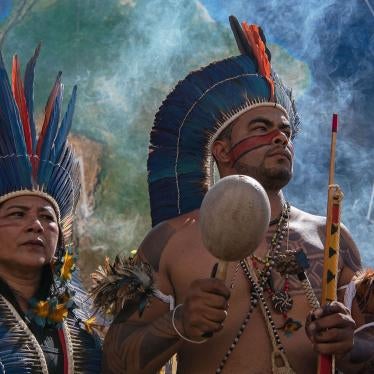Brazil’s civil society scored a victory after a government minister announced that the country will host a United Nations group of experts to address police violence, which disproportionately affects Black people in Brazil.
This path to reform policing in Brazil was created by the UN following police violence in the United States. The murder of George Floyd, a Black man, by US police in 2020 generated worldwide protests calling for reforms to advance prosecutions of such crimes, reparations to victims’ families, and more generally, fairness in criminal justice. A little over a year later, the United Nations created the International Independent Expert Mechanism to Advance Racial Justice and Equality in Law Enforcement, partly in response to those calls and the urging for “transformative change” in law enforcement.
Since then, together with more than 120 groups, including grassroots, civil society, and human rights organizations, Human Rights Watch has been hammering Brazil’s government to invite the panel to assess policing and guide reforms in Brazil. Those efforts paid off last week, when the government of Brazil said that the UN experts will visit in November.
Police violence in Brazil is so widespread and unchecked that it was highlighted in a recent UN report urging prosecution of abusive cops worldwide. And while Black people are about 56 percent of Brazil’s population, they made up 80 percent of the more than 6,000 victims of police killings in 2021, the latest data available.
Human Rights Watch has reported on police violence and its disproportionate impact on Black people in Brazil for years. We have documented extrajudicial executions and other killings by police that are the result of the use of excessive force. We have also shown the failure of authorities to properly investigate those deaths and hold abusive officers accountable.
Our request to the administration of former President Jair Bolsonaro fell on deaf ears. No surprise: The former president effectively encouraged police violence by applauding officers after deadly raids in impoverished neighborhoods and promoted legal changes that would have made it harder to hold abusive officers accountable.
The inauguration of President Luiz Inácio Lula this January brought a sea-change in government policy and rhetoric about race. One of Lula’s first acts was to create a Ministry of Racial Equality, elevating an office that Bolsonaro had drained of resources.
To head the newly created ministry, Lula named Anielle Franco, the sister of Marielle Franco, a Rio de Janeiro city councilwoman who had advocated relentlessly on behalf of victims of police abuse until she, too, was gunned down five years ago at age 38. Two former police officers have been charged with the killing.
Soon after Anielle Franco took office, HRW met with her and newly appointed Minister of Human Rights Silvio Almeida to detail the ways in which the international experts could help forge plans for reducing police brutality. We then joined more than 60 allies in writing to Minister of Foreign Affairs Mauro Vieira to urge an invitation.
Last week, we received a reply: The ministry had extended an invitation to the experts, who had scheduled a visit for November 27 to December 8 of this year. The experts will seek to help Brazilian officials curb a culture of impunity for police brutality.
They are expected to meet with members of communities that have suffered abuses and to gather information from police and other criminal justice officials. And they will issue recommendations to inform Brazil’s federal and state governments policies aimed at reducing policy brutality, especially against Black young people.
This kind of outside pressure can help bring safer, more equitable policing to poor communities and save lives.
*A version of this article has been published in Brazilian news site UOL.










